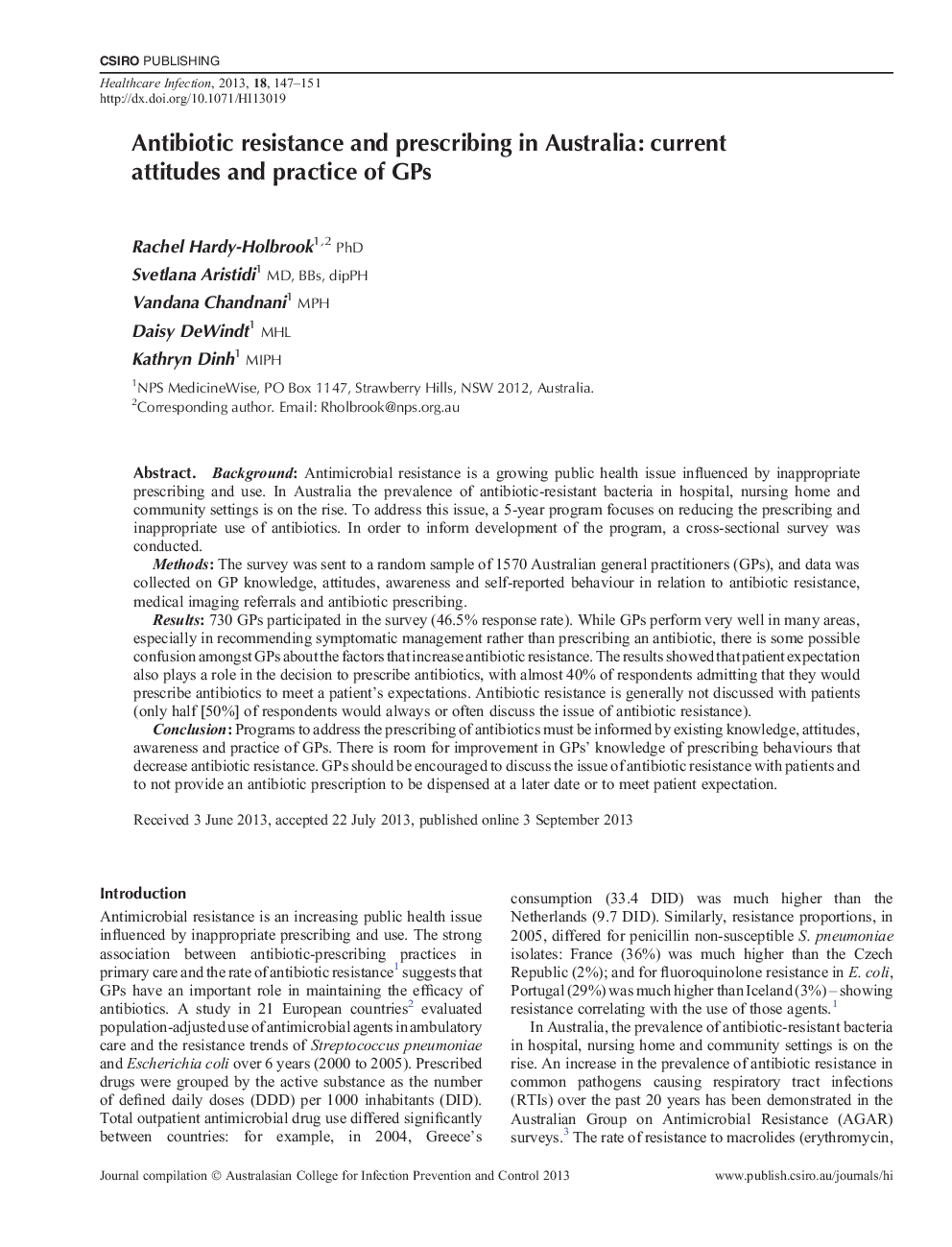| Article ID | Journal | Published Year | Pages | File Type |
|---|---|---|---|---|
| 2685384 | Healthcare infection | 2013 | 5 Pages |
BackgroundAntimicrobial resistance is a growing public health issue influenced by inappropriate prescribing and use. In Australia the prevalence of antibiotic-resistant bacteria in hospital, nursing home and community settings is on the rise. To address this issue, a 5-year program focuses on reducing the prescribing and inappropriate use of antibiotics. In order to inform development of the program, a cross-sectional survey was conducted.MethodsThe survey was sent to a random sample of 1570 Australian general practitioners (GPs), and data was collected on GP knowledge, attitudes, awareness and self-reported behaviour in relation to antibiotic resistance, medical imaging referrals and antibiotic prescribing.Results730 GPs participated in the survey (46.5% response rate). While GPs perform very well in many areas, especially in recommending symptomatic management rather than prescribing an antibiotic, there is some possible confusion amongstGPs about the factors that increase antibiotic resistance. The results showed that patient expectation also plays a role in the decision to prescribe antibiotics, with almost 40% of respondents admitting that they would prescribe antibiotics to meet a patient's expectations. Antibiotic resistance is generally not discussed with patients (only half [50%] of respondents would always or often discuss the issue of antibiotic resistance).ConclusionPrograms to address the prescribing of antibiotics must be informed by existing knowledge, attitudes, awareness and practice of GPs. There is room for improvement in GPs’ knowledge of prescribing behaviours that decrease antibiotic resistance. GPs should be encouraged to discuss the issue of antibiotic resistance with patients and to not provide an antibiotic prescription to be dispensed at a later date or to meet patient expectation.
